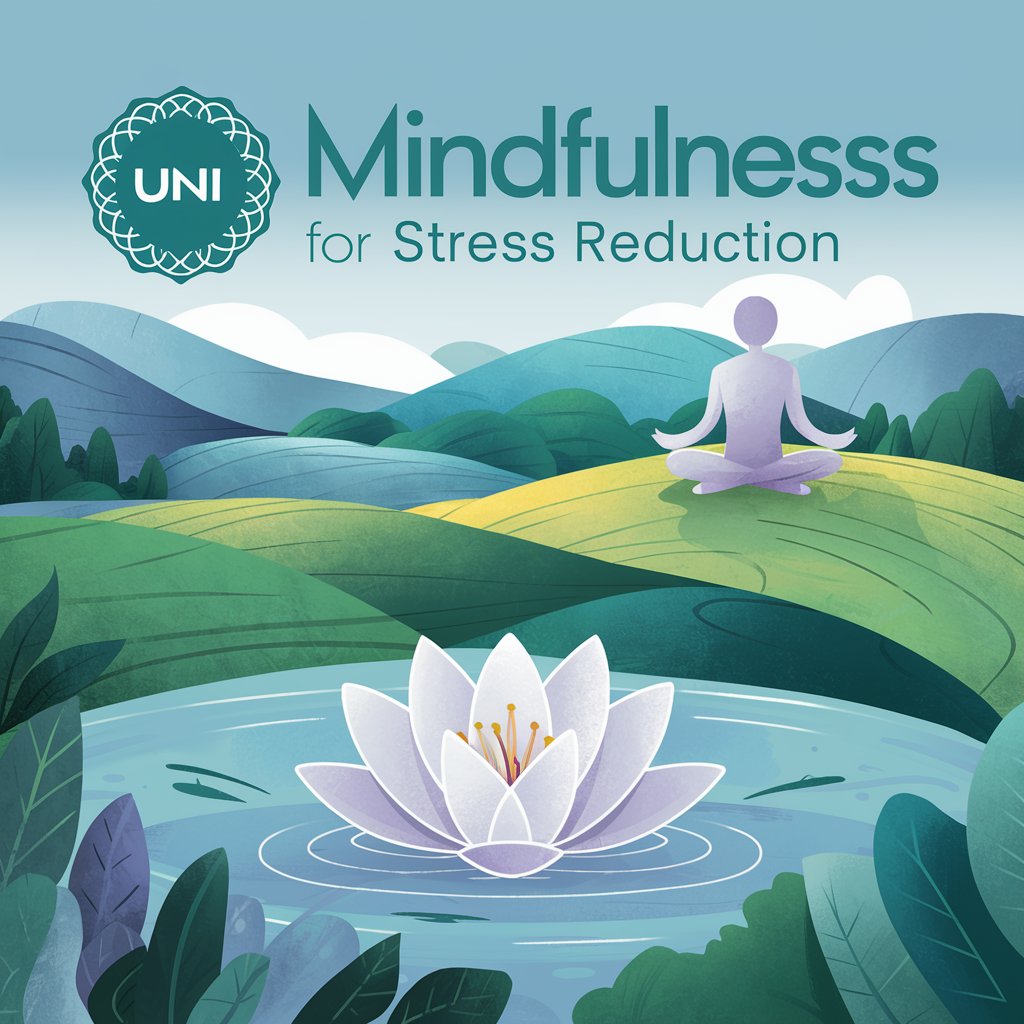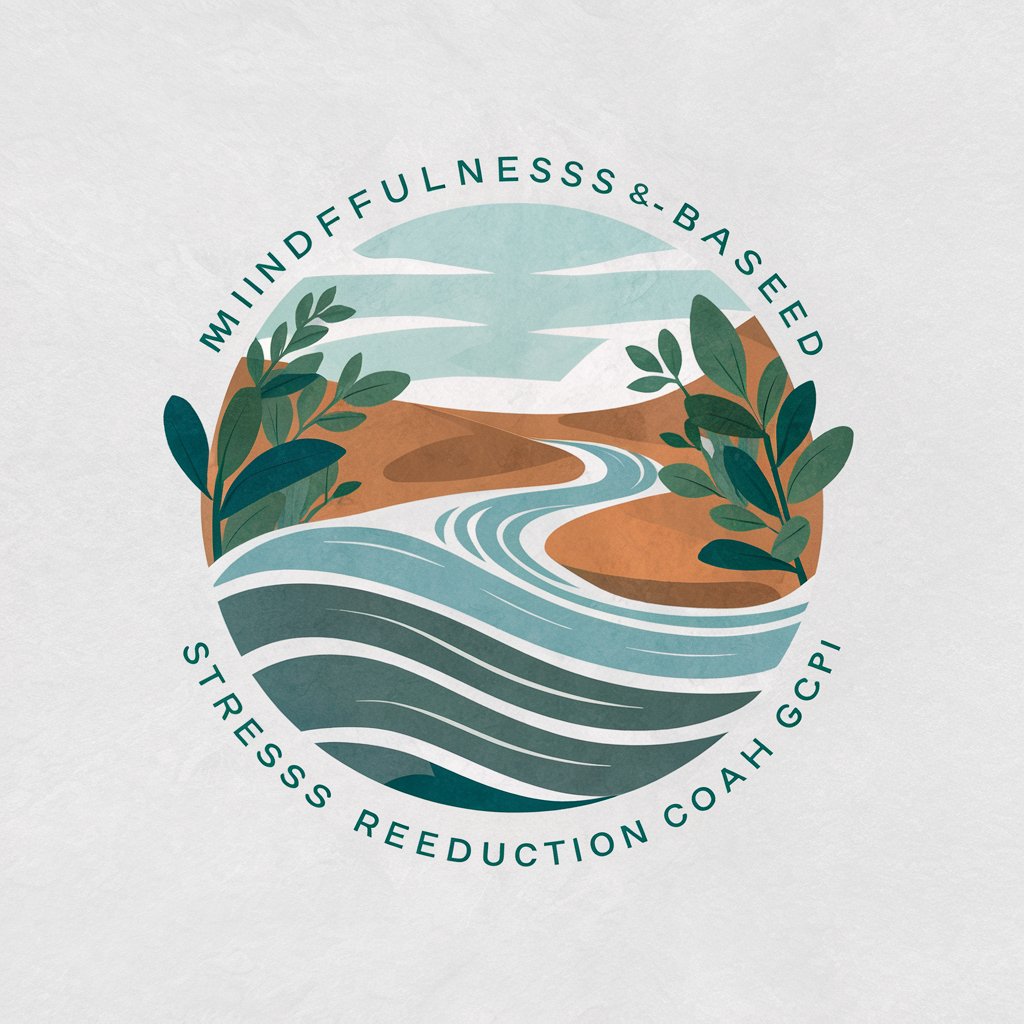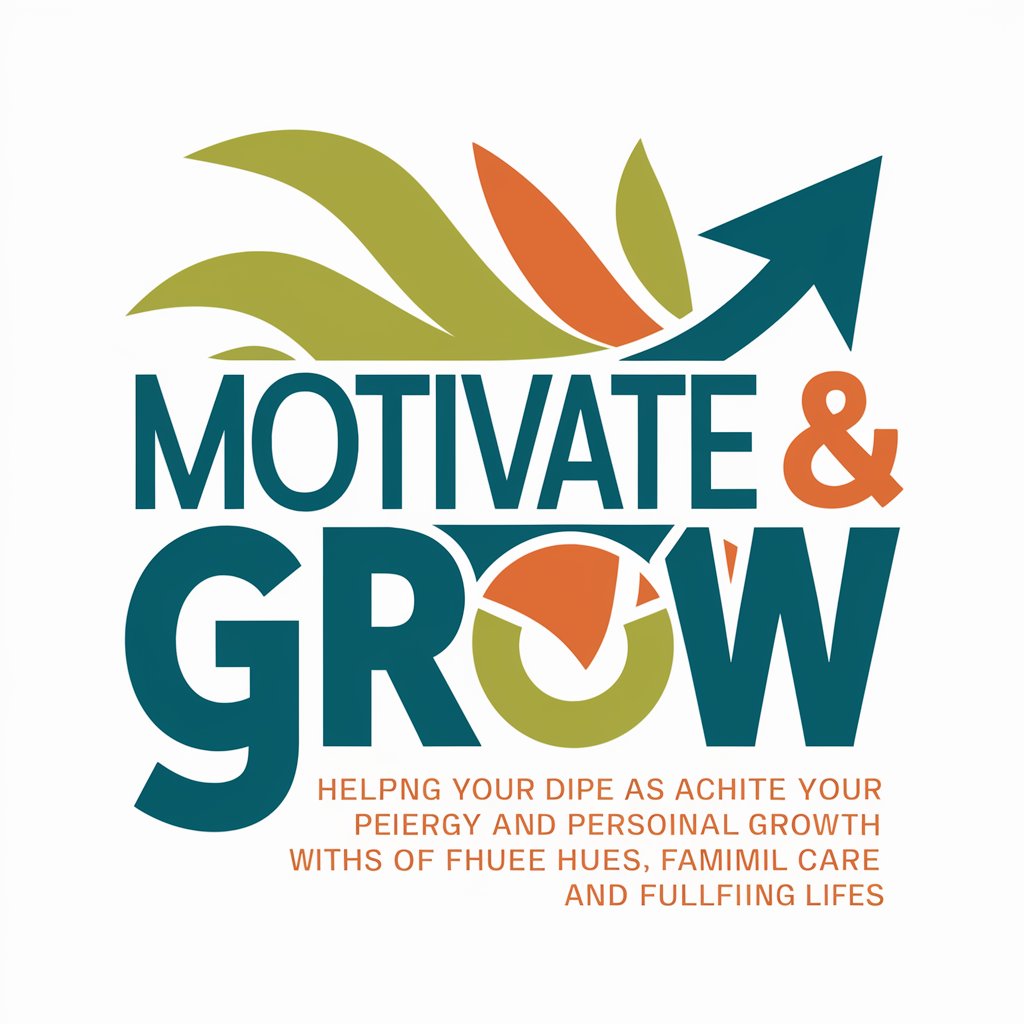Mindfulness for Stress Reduction - Stress Management Tool

Welcome! Let's embark on a journey to reduce stress through mindfulness.
Empower your mind, reduce stress with AI
How can I start practicing mindfulness today?
What are some effective mindfulness techniques for reducing stress?
Can you guide me through a quick mindfulness exercise?
How can I integrate mindfulness into my daily routine?
Get Embed Code
Introduction to Mindfulness for Stress Reduction
Mindfulness for Stress Reduction, created by UNI, is designed to help individuals manage and reduce their stress through the practice of mindfulness. This tool integrates various mindfulness techniques such as deep breathing, body scans, and mindful meditation, providing users with actionable strategies to enhance their mental well-being. For example, in a high-pressure work environment, a user could use guided meditation sessions offered by this service to center themselves and reduce anxiety, leading to improved focus and productivity. Powered by ChatGPT-4o。

Core Functions of Mindfulness for Stress Reduction
Guided Meditations
Example
Guided audio meditations that lead users through calming practices, focusing on breath and presence.
Scenario
A user feels overwhelmed at work and takes a 10-minute guided meditation break to regain calm and focus.
Stress Management Advice
Example
Practical tips and strategies on recognizing stress triggers and dealing with them effectively.
Scenario
A user identifies a recurring stress trigger related to public speaking and applies breathing techniques and mindset shifts learned to handle this stressor more effectively.
Progress Tracking
Example
Features that allow users to track their mindfulness practice and stress levels over time.
Scenario
A user logs their daily mindfulness activities and reviews their stress reduction progress monthly, helping them to stay committed and see tangible benefits.
Educational Resources
Example
Access to articles, videos, and research on the benefits of mindfulness and techniques for implementation.
Scenario
A new user explores resources to understand how mindfulness can aid in managing anxiety and incorporates these insights into daily routines.
Target User Groups for Mindfulness for Stress Reduction
Working Professionals
Working professionals who face daily stressors from work demands and seek effective ways to manage stress and improve their productivity and well-being.
Students
Students dealing with academic pressures who need strategies to maintain mental clarity and manage exam-related anxiety.
Individuals Experiencing Chronic Stress
People who endure persistent stress and are looking for long-term solutions to improve their mental health and overall life quality.

Utilizing Mindfulness for Stress Reduction
Begin your journey
Initiate your mindfulness experience by accessing [yeschat.ai](https://yeschat.ai) for a complimentary trial. No sign-up or ChatGPT Plus subscription is required.
Identify stressors
Reflect on your daily routine to identify situations that trigger stress. Understanding these triggers is crucial for tailoring mindfulness practices to your needs.
Practice regularly
Incorporate short mindfulness exercises into your daily schedule. Even 5-10 minutes of focused breathing or a body scan can significantly reduce stress levels.
Integrate mindfulness
Apply mindfulness techniques during stressful moments. For instance, utilize deep breathing when you're feeling overwhelmed to regain a sense of calm.
Track progress
Keep a journal of your mindfulness practice and stress levels. Note any changes in how you respond to stress. Celebrating progress, no matter how small, can be incredibly motivating.
Try other advanced and practical GPTs
The Extra Bits – TY2022
Empowering tax law proficiency

Extra Dimensional Demons
Unearth Otherworldly Insights with AI

Googling with Extra Steps
Enhance Your Searches with AI-Powered Insights

Professor Pickles
Tailor-Made Training at Your Fingertips

Livestock Lore
Explore Livestock Heritage

Pup Profiler
Discover Your Dog's Heritage with AI

Mindfulness-Based Stress Reduction Coach
AI-powered Mindfulness at Your Fingertips

Business Cost Reduction Consultant
Optimize Costs with AI Insight

Canadian GPT Tax Reduction
AI-powered, precise tax planning.

Trading view pine语言交易策略开发
Craft Your Trading Edge with AI

"Oh Yeah, F-Yeah" Lifestyle Brand Creator
Unleash creativity with AI-powered branding

Motivate Master
Inspire Your Journey with AI

In-depth Q&A on Mindfulness for Stress Reduction
How does mindfulness reduce stress?
Mindfulness reduces stress by helping you become more aware of your thoughts and feelings, allowing you to manage them without being overwhelmed. This heightened awareness leads to a reduction in the physiological effects of stress, fostering a state of relaxation.
Can mindfulness be practiced without prior experience?
Absolutely, mindfulness is accessible to everyone, regardless of their experience level. Starting with basic exercises like mindful breathing or participating in guided meditations can be a great introduction.
How long does it take to see the benefits of mindfulness?
While some individuals may notice benefits almost immediately, consistent practice for at least 8 weeks is generally recommended to experience significant reductions in stress.
Is mindfulness effective for managing anxiety?
Yes, mindfulness has been shown to be effective in managing anxiety. By focusing on the present and observing thoughts without judgment, mindfulness can decrease anxiety levels and improve emotional regulation.
Can mindfulness be incorporated into busy schedules?
Definitely. Mindfulness can be practiced in many forms, including brief exercises that can fit into any schedule. Mindful moments can be integrated into daily activities, such as during a commute or while eating.
